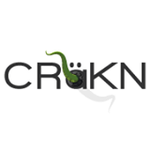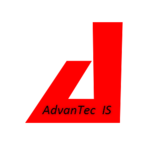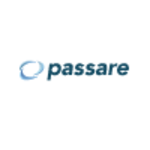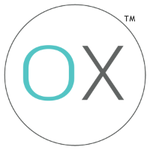Most modern funeral home software may be accessed from numerous devices and platforms. This covers desktop computers, laptops, tablets, and smartphones. This allows funeral directors to access critical information and tools whenever and wherever they need them. However, it is always advisable to check with the software supplier to confirm compatibility with your preferred devices and platforms.
List of Best Funeral Home Software
CRaKN is a funeral management software solution. Our advanced data fields and seamless integration with Tribute will revolutionize your operations. With upcoming online payment and planning capabilities, streamline your funeral business and gain valu...Read More CRaKN
Obit Funeral Management is a cloud-based software for todays funeral directors. Designed in collaboration with industry experts, our platform offers a seamless approach to managing administrative tasks, safeguarding sensitive data, and the convenienc...Read More Obit Funeral Management
FuneralKiosk, a unique software catered to the needs of funeral service providers. Our personalized feature allows families to effortlessly select merchandise, increasing their overall satisfaction. Our user-friendly solution provides a seamless and...Read More FuneralKiosk
MemorialMaster is a tool for easily creating personalized memorial cards. With our user-friendly interface, you can customize, print, and save heartfelt tributes to honor your loved ones and keep their memories alive for future generations. No more c...Read More MemorialMaster
DataVault PM is a funeral management system that simplifies payment processing for families. With our platform, families can easily come together and complete paperwork online, while also taking advantage of on-demand printing for funeral home docume...Read More DataVault PM
Parting Pro transforms your funeral operations by automatically updating data. Maximize your business potential and unlock endless possibilities with this software. Streamline payments with our online gateway, effortlessly create forms and invoices,...Read More Parting Pro
Halcyon Deathcare Management - a software that streamlines all your funeral management tasks. With automatic updates and a unique family link feature, you can say goodbye to manual data entry and ensure a seamless experience for grieving families. Si...Read More Halcyon Deathcare Management
Passare is a highly efficient funeral home management software. With a single click, it can generate customized invoices, checklists, and text notifications for a seamless operation. Say goodbye to manual paperwork and simplify your funeral home task...Read More Passare
OpusXi is a funeral home management software designed to take your business to new heights. Powered by state-of-the-art AI technology, OpusXi simplifies data management and empowers you to build a solid financial base. With a range of comprehensive f...Read More OpusXi
OurFuneral.com is a comprehensive online SaaS platform for funeral planning. Designed for Funeral Directors, Churches, and individuals, it offers various services such as Live Memorial Creation, Ceremonies Management, and Fundraising. Organizing a fu...Read More OurFuneral.com
Reset is solution for effortless system recovery and data management. Our software boasts an automated backup feature, a user-friendly interface, and robust security measures to guarantee a seamless and secure restoration process. Experience the reli...Read More Reset
MiMS Elite is a funeral software for an elevated funeral home experience. With its advanced cloud-based capabilities, this innovative suite streamlines funeral planning by creating a personalized family link and automating formalities. Integration wi...Read More MiMS Elite
MACCS - the leading burial and memorial management software designed to cater to the needs of cemetery and funeral service providers. With its customizable features and intuitive interface, MACCS simplifies the entire process of cemetery management,...Read More MACCS
FuneralOne, the foremost software provider in the funeral industry, is committed to modernizing traditional memorial practices. Our innovative solutions streamline planning and commemoration, enabling personalized and heartfelt tributes for the depar...Read More funeralOne
Osiris the funeral management software that transforms record keeping for funeral homes. Utilizing AI technology, Osiris efficiently organizes and analyzes data from multiple sources, eliminating the need for manual record maintenance. This streamlin...Read More Osiris
FrontRunner Professional, the state-of-the-art funeral home management software that revolutionizes operations. Designed with a cloud-based system, it simplifies all necessary tasks, enhancing overall quality. Automated saving and data input feature...Read More FrontRunner Professional
Procession is a funeral planning software for the modern era. Bid farewell to the hassle of memorial arrangements at the funeral parlor. This cutting-edge tool streamlines online communication, event planning, and calendar coordination with effortles...Read More Procession
FDMS Network is a state-of-the-art funeral home management system that comes equipped with advanced reporting functionalities and personalized templates for maximum efficiency. This cloud-based solution effortlessly integrates with multiple accountin...Read More FDMS Network
Learn More About Funeral Home Software
- What Is Funeral Home Software?
- What Are The Recent Trends In Funeral Home Software?
- Benefits Of Using Funeral Home Software
- Important Factors To Consider While Purchasing Funeral Home Software?
- What Are The Recent Trends In Funeral Home Software?
- Why Do Businesses Need Funeral Home Software?
- How Much Time Is Required To Implement Funeral Home Software?
- How Much Time Is Required To Implement Funeral Home Software?
- Which Industries Can Benefit The Most From Funeral Home Software?
- Conclusion
What Is Funeral Home Software?
Funeral home software is specialized software that helps funeral directors and personnel manage many areas of a funeral home's day-to-day operations. This software may streamline and manage a variety of processes, from collecting client information and processing financial transactions to establishing and managing funeral service plans, making them more efficient and less time consuming.
One of the primary benefits of funeral home software is the ability to build and keep detailed client information. This includes both personal information (such as name, address, and contact information) and funeral-related information (such as service preferences and payment history). This not only helps funeral directors maintain track of their clients, but it also provides quick and easy access to critical information when needed.
Funeral home software not only manages customer information, but also provides financial management features. This can contain services like as invoicing, billing, and payment tracking. This can save time and eliminate human error while processing payments and managing financial data. Another important feature of funeral home software is the capacity to generate and manage funeral service plans.
This can incorporate functions such as writing digital obituaries, making and printing funeral programs, and maintaining guest lists. Funeral directors can use this program to produce customized and professional-looking documents for their clients, as well as maintain track of vital facts and make modifications as needed. Some funeral home software includes additional capabilities including online condolences or memorial websites, connectivity with funeral home websites, and inventory and supply management tools.
This varies based on the software, so it's critical to investigate and evaluate several solutions to discover the greatest fit for your funeral home's requirements. Overall, funeral home software can help a funeral home by streamlining and organizing various processes, decreasing manual work, and delivering a more professional and efficient experience for both funeral directors and their clients. Before selecting on the best funeral home software for your business, you should conduct extensive research and compare several solutions.
What Are The Recent Trends In Funeral Home Software?
Funeral homes are rapidly adopting technology to streamline and improve operations. This has resulted in an increased need for funeral home software that can help them manage client records, financial transactions, and service planning. In recent years, there have been numerous important trends in funeral home software that should be considered before making a purchase decision.
One key trend is the migration to cloud-based solutions. Traditionally, funeral home software was deployed on a local server, which restricted access to the program from a certain region. However, with the advancement of cloud technology, funeral home software can now be accessible from any internet-connected device, giving funeral home staff greater flexibility and convenience.
Furthermore, this eliminates the need for expensive hardware and IT support, making it a more affordable choice. Another tendency is the inclusion of electronic payment methods. This eliminates the need for paper checks and enables faster, more secure financial transactions. Funeral homes can also provide online payment choices to families, streamlining the procedure and improving their overall experience.
Personalization has also been an important consideration in funeral home software. Funeral homes may now build personalized service templates that are readily customized to meet the needs of each individual. This enables a more tailored approach to funeral services, ensuring that families have a unique and memorable experience. Furthermore, funeral home software is increasingly being integrated with social media and other internet channels.
This allows funeral houses to reach a larger audience and communicate with families in a more modern way. Funeral houses may now use social media to distribute obituaries, live stream funerals, and contact with families, making the process more accessible and efficient. Finally, data analytics are increasingly being used in funeral home software. This enables funeral homes to track and evaluate many indicators, such as service preferences, in order to make better business decisions. It also helps to identify areas for improvement and ensures that families have the greatest possible experience.
Benefits Of Using Funeral Home Software
Funeral home software is a form of management software tailored exclusively to funeral homes and mortuaries. It provides a number of functions to help funeral directors with their everyday operations, ranging from administrative work to coordinating and planning services for families. Here are some of the major advantages of using funeral home software.
1. Efficient And Streamlined Processes: Funeral home software automates and streamlines many of the tasks associated with running a funeral home, including recording and tracking client information, establishing and maintaining contracts, and handling financial transactions. This leads to more efficiency and accuracy, as well as less paperwork and human data entry.
2. Improved Organization And Record-Keeping: Funeral home software stores all client information, contracts, and financial records in one location, making them easy to access and update as needed. This eliminates the possibility of losing or misplacing information, leading in improved funeral home organization and record-keeping practices.
3. Personalized And Professional-Looking Paperwork: Funeral home software frequently provides customized templates for contracts, invoices, and other documents. This enables funeral directors to develop professional-looking documents that can be easily adapted to each client's specific requirements, adding a personal touch to the services offered.
4. Comprehensive Scheduling And Calendar Management: Managing funeral schedules and appointments can be a demanding chore, but funeral home software makes it much easier. Funeral directors can effortlessly arrange and manage their calendar, ensuring that nothing slips between the gaps.
5. Accounting And Payment Processing Integration: The majority of funeral home software is compatible with common accounting and payment processing systems. This considerably simplifies the invoicing and payment process, lowering the likelihood of errors and making it easier to track money.
6. Improved Communication And Collaboration: Funeral home software frequently contains features that promote improved communication and collaboration among funeral directors, personnel, and families. This can include the ability to notify and update family members, as well as give tasks to team members.
7. Data Analysis And Reporting: Funeral home software also lets you track and analyze data like service kinds, sales, and expenses. This information can be utilized to create data-driven decisions that will benefit the funeral home's operations and services. Overall, funeral home software has various benefits for streamlining and improving day-to-day operations at a funeral home. It can save time and effort, improve organization and efficiency, and ultimately give better service to the funeral home's clients.
Important Factors To Consider While Purchasing Funeral Home Software?
When it comes to selecting funeral home software, there are various variables to consider to ensure you make the best option for your company.
This detailed buyer's guide will cover all of the important factors to consider before making a purchase.
1. Cost: The first thing to examine is the cost of the software. You want to make sure the price fits your budget and includes the things your funeral home requires. Some software may be purchased once, while others require a monthly or annual subscription. Take the time to compare prices and select the best solution for your budget.
2. Functionality: Funeral home software should streamline and simplify your processes, saving you time and money. Before making a purchase, consider the characteristics and functionalities of each software. Pay close attention to crucial aspects like appointment scheduling, inventory management, and accounting to verify they match your company's requirements.
3. Usability: You want to invest in software that is simple to use for both you and your employees. Look for systems with an easy-to-use interface and that provide training and assistance to ensure a seamless transition. User-friendly software saves time and reduces the learning curve for your workforce.
4. Customization Options: Each funeral home is unique and has special requirements. Look for software that allows you to customize the system to fit your specific company operations. This will ensure that the software fulfills your exact specifications and improves your operations.
5. Integration: Funeral home software should work seamlessly with other systems, such as accounting and invoicing software. This will help to streamline your processes and minimize the need for manual data entry, lowering the risk of errors.
6. Security: Funeral home software will handle sensitive information, such as personal and financial information. To secure your data from cybersecurity risks, you must choose a system that includes comprehensive security features. Look for software that provides encrypted data storage and scheduled backups.
7. Customer Support: If you have any technical issues or inquiries, you should be able to contact a reliable customer service representative. Make sure the program you purchase provides 24-hour customer care and numerous help channels, such as phone, email, and live chat.
8. Reviews And References: Before purchasing, study reviews from other funeral home owners and request references from the software supplier. This will provide you with insights on other users' experiences, allowing you to make an informed decision. When choosing funeral home software, keep these points in mind to help you select the best solution for your needs. It is critical to take your time, conduct thorough research, and select a software provider who offers a comprehensive package tailored to your individual requirements.
What Are The Recent Trends In Funeral Home Software?
When it comes to managing a funeral home, having the correct software may make a huge impact. Funeral home software is an excellent investment since it streamlines operations, helps you stay organized, and provides a smooth experience for bereaved families. So, what features should you check for when deciding which program to buy? Let's look at the major aspects that define high-quality funeral home software.
1. Record Management: The capacity to manage and organize documents is an important aspect of funeral home software. Whether it's the deceased's details, service preferences, or financial information, having a centralized database for all of this information is critical. Look for software that includes customized fields, advanced search capabilities, and quick access to the information you require.
2. Scheduling And Calendar: Funeral services involve exact coordination and organization, which a sophisticated scheduling and calendar tool may assist with. Look for tools that can help you manage appointments, schedule workers, and set aside time for services and meetings.
3. Accounting And Invoicing: Efficient financial management is essential for any organization, including funeral homes. Look for software that includes accounting and invoicing capabilities to help you keep track of your income, spending, and outstanding payments.
4. Online Condolences And Memorials: In today's digital world, having an online presence is essential for reaching a larger audience and giving convenience to families. Look for software that includes features such as online condolences and memorials, which allow loved ones to express their sympathy and share memories of the departed.
5. Communication Features: Funeral home software should include communication features that allow you to stay in touch with family members and other stakeholders. Look for email and text messaging capabilities, as well as possibilities to create and distribute personalized messages and forms.
6. Inventory Management: From caskets to urns, inventory management is an essential part of running a funeral home. Look for software that includes inventory management tools for tracking and managing stock levels, creating purchase orders, and keeping track of supplier information.
7. Integration With Other Services: To streamline your procedures and boost efficiency, search for funeral home software that works with other important services such as florists, caterers, and funeral homes. This will save you time and effort in coordinating services, resulting in a more seamless experience for families.
8. Customer Support: Last but not least, confirm that the software source provides dependable customer service. From initial setup to troubleshooting, having a responsive support team may make your software experience smoother and less stressful.
Why Do Businesses Need Funeral Home Software?
Funeral home software is an invaluable resource for any funeral-related business. Whether you are a small, family-owned funeral home or a major corporation, investing in funeral home software can be extremely beneficial to your business.
Here are some important reasons why businesses require funeral home software.
1. Streamline Operations: Funeral home software may help with a variety of duties and operations, including tracking client information, making funeral arrangements, and generating all essential documentation. This can save organizations time and effort, allowing them to focus on offering high-quality services to their clients.
2. Efficient Communication: Funeral home software enables businesses to effortlessly communicate with clients, family, and employees. This guarantees that all critical information is communicated quickly and properly, preventing miscommunication or delays that might occur with manual procedures.
3. Organize Records: Funeral home software enables firms to keep client and service records secure and organized. This not only makes it easy to retrieve information when necessary, but it also ensures that sensitive material is kept private.
4. Customization: Funeral home software can be customized to meet the unique demands and practices of each organization. This level of personalization enables a more efficient and tailored approach to service management, which leads to increased client satisfaction.
5. Financial Management: Funeral home software frequently incorporates invoicing, billing, and accounting functions, making it easier for firms to handle their funds. This can also aid in tracking expenses and earnings, giving firms a clear picture of their financial situation.
6. Increase Productivity: Funeral home software's automation and organizing can help improve overall business productivity. This can result in improved service delivery, faster turnaround times, and more efficient resource allocation.
How Much Time Is Required To Implement Funeral Home Software?
The installation time for funeral home software varies depending on a number of factors, including the size of your company, the complexity of the software, and the available resources. Typically, the installation phase can last from a few weeks to several months. The first step in deploying funeral home software is to evaluate your present business operations and identify areas where the software might help streamline and improve efficiency.
This approach may include working closely with the software vendor to understand the software's features and capabilities, as well as how it may be adjusted to your funeral home's specific needs. Once you've decided on software, the next step is to set it up and customize it to meet your company's demands. This could entail entering data and preferences including price, service options, and client information.
The software vendor may also provide training and assistance to help you and your staff become acquainted with the new system. It is critical to understand that the adoption of funeral home software is not a one-time occurrence and will necessitate continuous maintenance and updates. However, the first phase of implementation is critical since it lays the groundwork for the software's efficient and effective utilization.
It is recommended that adequate time and resources be allocated to the installation process to guarantee a smooth transition and full exploitation of the software's functionality. Furthermore, having a dedicated project manager on your team to oversee the deployment process can assist streamline it while also ensuring responsibility and clear communication with the software vendor.
entire, while the timeline for installing funeral home software may vary, devoting the necessary time and effort to the process can tremendously benefit your company in the long term by increasing productivity, improving record-keeping, and improving the entire customer experience.
How Much Time Is Required To Implement Funeral Home Software?
When selecting the best funeral home software, customization possibilities are critical to consider. Funeral home software can provide a variety of features and capabilities, but the degree of customization available varies widely amongst software suppliers. Some funeral home software may provide limited customization options, such as pre-designed templates and the opportunity to modify the software to your individual business needs.
Although this form of software is less expensive, it may not be able to fully satisfy your funeral home's specific needs. On the other hand, funeral home software solutions provide a great level of flexibility, allowing you to tailor the program to your specific business procedures and workflows.
These software choices may have a higher initial cost, but they can give greater value in the long run by streamlining operations and increasing productivity. When deciding on the extent of customization offered in funeral home software, you should analyze your company's specific requirements. Some software provides configurable forms, reports, and templates, whilst others allow for more extensive customization, such as interfacing with other systems or generating new fields and workflows.
It is also important to examine the simplicity of modification. Some software may necessitate technical knowledge or outside assistance to make modifications, but others include user-friendly customization options that allow you to make changes alone. In conclusion, the level of customisation possible in funeral home software can have a significant impact on its overall functionality and usefulness. To select the greatest fit for your funeral home, carefully consider your company's demands and the customization choices provided by various software suppliers.
Which Industries Can Benefit The Most From Funeral Home Software?
Funeral home software has become an indispensable tool for organizing funeral arrangements, streamlining operations, and improving the overall experience for both funeral home workers and families. While it may appear that funeral home software is just useful for funeral homes, there are other businesses that can profit immensely from adopting this technology.
1. Funeral Homes And Directors: It goes without saying that funeral homes and directors are among the most likely businesses to gain from funeral home software. This program allows funeral directors to manage all parts of funeral arrangements, including scheduling, billing, and coordinating with other service providers. This not only saves time and eliminates the possibility of errors, but it also frees funeral directors to focus on giving empathetic care to bereaved families.
2. Cemeteries: Funeral home software can also aid the cemetery industry. This program allows cemetery managers to successfully manage and track burial plots, coordinate with funeral houses, and arrange maintenance and upkeep operations. This helps to guarantee that cemetery operations run smoothly and efficiently, which improves the entire experience for families who visit their loved ones' graves.
3. Hospice And Palliative Care: Institutions can also benefit from funeral home software implementation. This technology enables them to readily arrange funeral services for patients who died while under their care. It facilitates the coordination of funeral homes and service arrangements, which may be a tough and painful undertaking for hospice personnel.
4. Churches And Religious Groups: Many churches and religious groups collaborate with funeral houses to provide funeral services to their members. Funeral home software can assist these organizations in effectively communicating with funeral homes, coordinating services, and managing the flow of information between staff, clergy, and families. This can help guarantee that religious services and customs are easily interwoven into the broader funeral planning process.
5. Insurance Businesses: Funeral home software can be useful for insurance businesses that specialize in funeral coverage. This technology enables them to quickly handle claims, track payments, and connect with funeral homes. This not only simplifies the insurance process, but also ensures that families receive the financial assistance they require during a difficult time.
Conclusion
Finally, selecting the appropriate funeral home software is critical for any funeral home seeking to manage their business successfully and efficiently. While there are numerous options available on the market, purchasers should carefully evaluate their personal requirements and budget before making a decision. Based on our research and analysis, we decided that the most important criteria to consider when considering funeral home software are comprehensive features, convenience of use, compatibility with existing systems, customer service, and affordability.
It is also critical for buyers to understand the many types of funeral home software, including as administration software, arrangement software, and accounting software, in order to select which one best meets their needs. Furthermore, reading reviews and demoing the product might help customers have a better grasp of its features and user experience. Taking advantage of free trials and demos might also help you make an informed selection.
Finally, we recommend that customers choose software with regular upgrades and support to maintain the system's longevity and stability. Funeral homes may use the correct software to streamline their procedures, enhance productivity, and deliver better services to their clients. We hope our buyer's guide has offered useful information and will help purchasers select the best funeral home software for their business.
Funeral Home Software FAQ's
Can Funeral Home Software Be Accessed Across Multiple Devices And Platforms?
Is Funeral Home Software Future-Proof And Adaptable To Emerging Technologies Like Ai, Blockchain or Iot?
Yes, funeral home software is always evolving and adapting to new technologies like AI, blockchain, and IoT. These innovations enable greater efficiency and automation in funeral planning, record keeping, and contact with families.
With the integration of these technologies, funeral home software can deliver a seamless and personalized experience for both funeral directors and families, making it future-proof in an industry that is always changing.
Is There A Free Trial Offered To Assess Funeral Home Software Before Committing?
Yes, many funeral home software vendors provide a free trial period so that potential clients can evaluate their program before making a purchase. This enables funeral homes to test the software's features and interface to decide whether it fulfills their requirements and can be effortlessly integrated into their business operations. Before committing to a long-term membership, use the free trial to check that the program is a good fit for your funeral home.
Does Funeral Home Software Offer Data Security Features And Meet Regulatory Compliance Standards?
Yes, funeral home software has data security safeguards to ensure that clients' sensitive information is kept secure and secret. Encryption, password protection, and regular data backups are among the features offered.
Additionally, funeral home software is developed to meet regulatory compliance standards, such as HIPAA and GDPR, to protect clients' sensitive information. This ensures that the program is secure and meets all legal standards.
Can Funeral Home Software Integrate Seamlessly With Existing Tools And Platforms?
Yes, funeral home software can work perfectly alongside existing tools and systems. With technological improvements, most funeral home software systems now have integration possibilities with popular tools and platforms such as accounting software, website platforms, and social media platforms.
This facilitates data transfer and centralized management, saving time and effort for funeral home personnel. It is critical to select software that provides integration possibilities and is compatible with your existing tools and platforms.




















